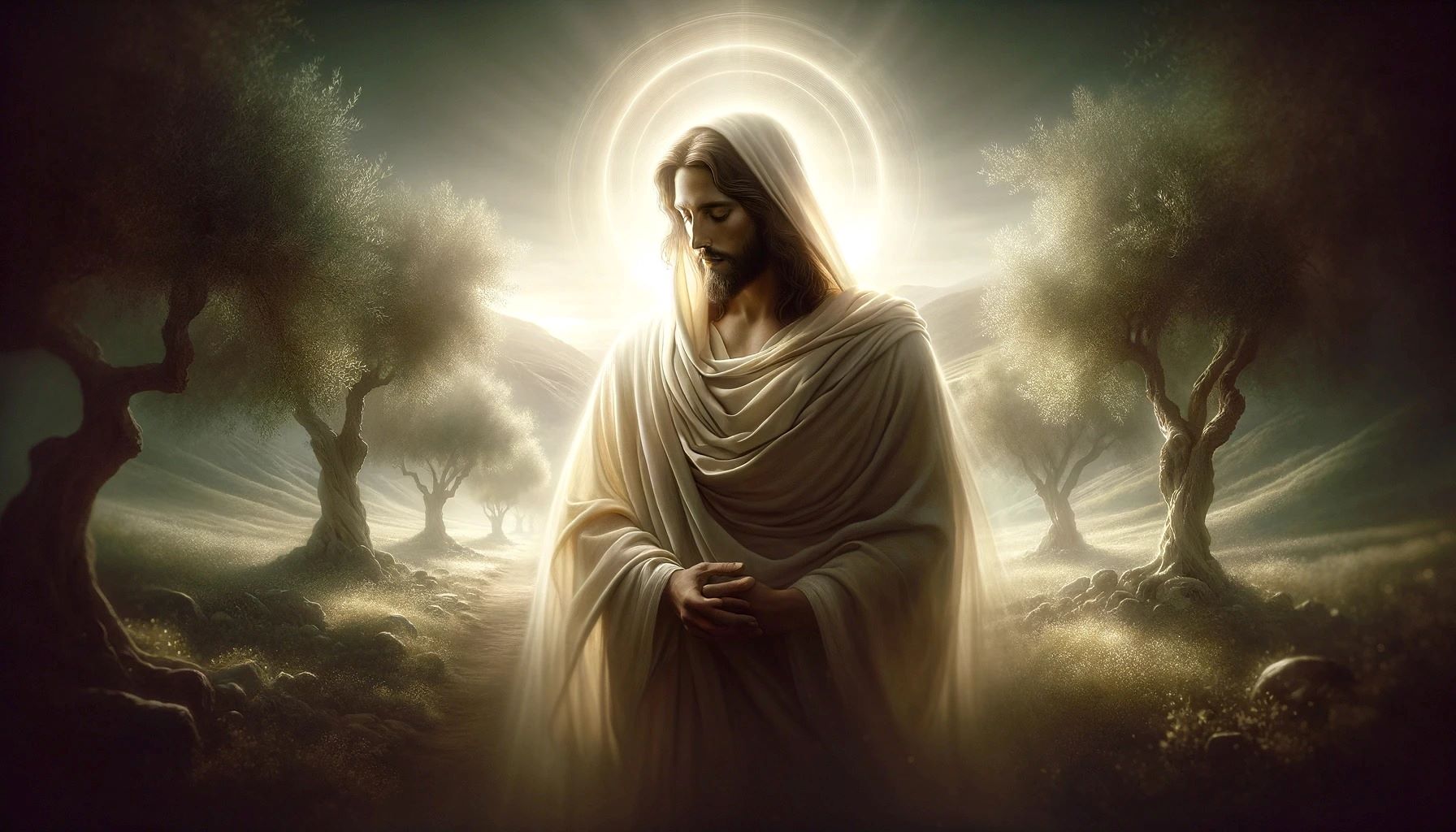Home>Theology and Spirituality>What Religion Is Similar To Baptist


Theology and Spirituality
What Religion Is Similar To Baptist
Published: February 23, 2024
Peter Smith, Editorial Director at Christian.net, combines deep insights into faith, politics, and culture to lead content creation that resonates widely. Awarded for his contributions to religious discourse, he previously headed a major organization for religious communicators, enhancing dialogue on faith's societal impacts.
Discover the similarities between Baptist and other religions in terms of theology and spirituality. Explore the commonalities and differences to gain a deeper understanding.
(Many of the links in this article redirect to a specific reviewed product. Your purchase of these products through affiliate links helps to generate commission for Christian.net, at no extra cost. Learn more)
Table of Contents
Introduction
The Baptist denomination, with its rich history and distinctive beliefs, holds a unique place within the tapestry of Christianity. As we delve into the similarities between Baptist beliefs and those of other religions, it's essential to understand the foundational principles that define the Baptist faith. From its historical origins to its core tenets, the Baptist tradition has evolved and flourished, leaving an indelible mark on the global religious landscape.
The Baptist denomination traces its roots back to the early 17th century, emerging from the English Separatist movement. With a steadfast commitment to the autonomy of local churches and the practice of believer's baptism, Baptists have carved out a distinct identity within the broader Christian community. This emphasis on individual conscience and the priesthood of all believers has shaped the ethos of Baptist congregations around the world.
Central to Baptist theology is the belief in salvation through faith in Jesus Christ alone. Baptists affirm the authority of the Bible as the inspired and infallible word of God, guiding their understanding of God's will and purpose for humanity. This unwavering devotion to scriptural truth forms the bedrock of Baptist doctrine, informing their approach to worship, ethics, and community life.
As we explore the similarities between Baptist beliefs and those of other religious traditions, it's important to recognize the nuanced interplay of theological concepts and spiritual practices. While each faith tradition maintains its distinctiveness, there are often points of convergence that invite deeper reflection and dialogue. By examining the core tenets of Baptist faith alongside those of other religions, we can gain a deeper appreciation for the shared values that underpin diverse spiritual journeys.
The Baptist denomination's enduring legacy and global influence underscore the significance of understanding its core beliefs in relation to other religious traditions. By embarking on this exploration, we embark on a journey of discovery, seeking to illuminate the threads of commonality that weave through the fabric of human spirituality. As we navigate the intersections of faith and doctrine, we uncover the profound connections that transcend denominational boundaries, fostering a spirit of mutual understanding and respect.
Read more: What Is A Baptist Religion
History of Baptist
The history of the Baptist denomination is a tapestry woven with threads of dissent, resilience, and unwavering faith. Its origins can be traced back to the early 17th century in England, amidst a period of religious and political upheaval. The tumultuous landscape of the Reformation era set the stage for the emergence of diverse theological movements, and it was within this milieu that the seeds of the Baptist tradition were sown.
One of the defining features of Baptist history is its association with the English Separatist movement, which sought to break away from the established Church of England. This quest for religious autonomy and the rejection of state interference in matters of faith laid the groundwork for the distinct identity of the Baptist denomination. The early Baptists, often referred to as "General Baptists" and "Particular Baptists," espoused differing theological perspectives, reflecting the diversity within the burgeoning movement.
A watershed moment in Baptist history occurred with the publication of the "London Confession of Faith" in 1644, which articulated the theological convictions of the Particular Baptists. This document, along with the "First London Baptist Confession" of 1646, provided a doctrinal framework that solidified the theological distinctiveness of the Baptist tradition. These confessions underscored the Baptist commitment to believer's baptism, congregational autonomy, and the priesthood of all believers, shaping the trajectory of the denomination for centuries to come.
The Baptist movement also experienced significant growth and expansion beyond the shores of England, finding fertile ground in the American colonies during the 17th and 18th centuries. Baptists played a pivotal role in the shaping of religious liberty in the New World, advocating for the separation of church and state and championing the principle of religious freedom for all.
Throughout its history, the Baptist tradition has weathered periods of persecution, internal divisions, and theological debates, yet it has remained steadfast in its commitment to core principles. The resilience and adaptability of Baptist congregations have enabled the denomination to thrive in diverse cultural contexts, contributing to its global presence and influence.
The history of the Baptist denomination is a testament to the enduring legacy of dissent, the pursuit of religious liberty, and the unwavering dedication to scriptural truth. As Baptists continue to navigate the complexities of the modern world, their historical journey serves as a source of inspiration and guidance, shaping their identity and mission in the ongoing narrative of faith and spirituality.
Core Beliefs of Baptist
At the heart of the Baptist faith lie foundational beliefs that have shaped the identity and mission of this denomination throughout its storied history. These core beliefs serve as guiding principles, informing the theological framework and spiritual practices of Baptist congregations around the world.
1. Authority of Scripture
Baptists affirm the absolute authority of the Bible as the inspired and infallible word of God. This foundational belief underscores the significance of scripture as the ultimate guide for faith and practice. The Bible serves as the lens through which Baptists interpret the nature of God, the redemptive work of Jesus Christ, and the ethical imperatives that govern the Christian life.
2. Salvation through Faith in Christ
Central to Baptist theology is the conviction that salvation is attained through personal faith in Jesus Christ. Baptists emphasize the necessity of a personal relationship with Christ, rejecting the notion of salvation through ritual or sacramental means. This belief underscores the primacy of individual conscience and the transformative power of God's grace in the life of the believer.
Read more: What Is The Religion Of Baptist
3. Believer's Baptism
The practice of believer's baptism stands as a defining characteristic of the Baptist tradition. Baptists uphold the belief that baptism is reserved for those who have made a conscious decision to follow Christ, symbolizing their identification with His death, burial, and resurrection. This emphasis on believer's baptism reflects the Baptist commitment to the autonomy of the local church and the priesthood of all believers.
4. Priesthood of All Believers
Baptists affirm the priesthood of all believers, emphasizing the direct access that every individual has to God through Christ. This belief underscores the absence of a hierarchical priesthood within Baptist ecclesiology, empowering each member of the faith community to engage in prayer, worship, and the proclamation of the gospel.
5. Autonomy of the Local Church
The Baptist tradition places a strong emphasis on the autonomy of the local church, granting each congregation the freedom to govern its affairs and make decisions independently. This commitment to local autonomy reflects the Baptist conviction that each church is accountable directly to God, fostering a sense of congregational responsibility and self-governance.
These core beliefs encapsulate the essence of Baptist identity, shaping the doctrinal distinctiveness and spiritual ethos of the denomination. They serve as enduring pillars that uphold the Baptist faith, anchoring its theological convictions and guiding the faith journey of believers across generations.
Similarities with Other Religions
While the Baptist denomination holds distinct theological convictions and doctrinal emphases, there are notable similarities between its core beliefs and those found in other religious traditions. These points of convergence offer a compelling lens through which to explore the interconnectedness of diverse faith expressions and the shared values that underpin human spirituality.
Read more: What Religion Was John The Baptist?
Emphasis on Personal Faith
One striking similarity between Baptist beliefs and those of certain other religions is the emphasis on personal faith as the cornerstone of spiritual life. In the Baptist tradition, salvation is predicated on an individual's personal decision to trust in Jesus Christ as Savior and Lord. Similarly, in many other faith traditions, the concept of personal faith and devotion to the divine plays a central role in shaping one's spiritual journey. Whether through acts of devotion, meditation, or prayer, the significance of personal faith resonates across diverse religious landscapes, underscoring a shared commitment to the transformative power of individual belief.
Ethical Imperatives and Moral Conduct
Another area of convergence lies in the ethical imperatives and moral conduct espoused by the Baptist tradition and various other religions. Baptists uphold the ethical teachings found in the Bible as guiding principles for righteous living, emphasizing virtues such as compassion, integrity, and justice. Similarly, many other religious traditions articulate moral precepts and ethical guidelines that inform the conduct of their adherents, fostering a shared commitment to upholding universal values that transcend cultural and religious boundaries.
Community and Fellowship
The value placed on community and fellowship within the Baptist tradition aligns with similar emphases found in other religions. Baptists prioritize the importance of congregational life, mutual support, and collective worship, reflecting a deep appreciation for the communal dimension of faith. Likewise, numerous other religious traditions emphasize the significance of community, fostering bonds of solidarity, shared rituals, and collective expressions of devotion. This common emphasis on the communal aspect of faith underscores the universal human need for connection, belonging, and shared spiritual experiences.
The Quest for Spiritual Truth
Across diverse religious traditions, there exists a shared quest for spiritual truth and transcendence that resonates with the core aspirations of the Baptist faith. Whether through prayer, meditation, study, or contemplation, individuals within the Baptist tradition and other religions seek to deepen their understanding of the divine and the mysteries of existence. This shared pursuit of spiritual truth underscores the universal human longing for meaning, purpose, and a deeper connection with the sacred, transcending the boundaries of specific religious affiliations.
In recognizing these similarities, we gain a deeper appreciation for the interconnectedness of human spirituality and the universal themes that unite diverse religious expressions. While each tradition maintains its distinctiveness, the shared values and aspirations that permeate the fabric of faith invite us to embrace a spirit of mutual understanding and respect, fostering dialogue and collaboration across religious boundaries.
Read more: What Religion Is The Westboro Baptist Church
Comparison with Other Christian Denominations
When comparing Baptist beliefs with those of other Christian denominations, it becomes evident that while there are shared foundational elements, there are also distinct theological emphases that set the Baptist tradition apart.
Salvation and Faith
One significant point of comparison lies in the Baptist emphasis on salvation through personal faith in Jesus Christ. This aligns with the core tenets of evangelical and Protestant denominations, which similarly underscore the centrality of faith in Christ for salvation. The concept of a personal relationship with Jesus as the means of redemption resonates across these denominational boundaries, reflecting a shared commitment to the transformative power of faith.
Baptism and Sacramental Theology
The practice of believer's baptism stands as a defining feature that sets Baptists apart from many other Christian denominations, particularly those within the Catholic, Orthodox, and some mainline Protestant traditions. While these denominations often practice infant baptism and ascribe sacramental significance to the rite, Baptists uphold the belief in baptism as an ordinance reserved for those who have made a conscious profession of faith. This distinction in sacramental theology underscores the divergent perspectives on the nature and administration of baptism across Christian traditions.
Ecclesiology and Church Governance
The Baptist commitment to the autonomy of the local church distinguishes it from denominational structures characterized by episcopal, presbyterian, or connectional forms of governance. While some Christian traditions feature hierarchical leadership and centralized authority, Baptists advocate for congregational autonomy and the priesthood of all believers, granting each local assembly the freedom to govern its affairs independently. This divergence in ecclesiological structure reflects differing interpretations of church governance and authority within the broader Christian landscape.
Read more: What Does Baptist Mean In Religion
Theological Emphases
While Baptist theology shares common ground with other Christian denominations on essential doctrines such as the Trinity, the deity of Christ, and the authority of scripture, there are nuanced theological emphases that set Baptists apart. For instance, the Baptist commitment to individual conscience, soul competency, and the separation of church and state reflects distinct perspectives on religious liberty and the relationship between faith and civic life. These theological nuances contribute to the unique identity of the Baptist tradition within the spectrum of Christian belief systems.
In examining these points of comparison, it becomes evident that while Baptist beliefs intersect with those of other Christian denominations on fundamental theological truths, there are also distinctive elements that shape the Baptist identity. This interplay of shared convictions and divergent emphases enriches the tapestry of Christian faith, fostering dialogue and mutual appreciation across denominational lines.
Conclusion
In conclusion, the Baptist denomination stands as a testament to the enduring legacy of dissent, resilience, and unwavering faith. From its historical roots in the English Separatist movement to its global presence today, the Baptist tradition has left an indelible mark on the landscape of Christianity. The core beliefs that define Baptist theology, including the authority of scripture, salvation through faith in Christ, believer's baptism, the priesthood of all believers, and the autonomy of the local church, serve as enduring pillars that uphold the Baptist faith.
As we explored the similarities between Baptist beliefs and those of other religious traditions, we discovered profound points of convergence that underscore the interconnectedness of human spirituality. The emphasis on personal faith, ethical imperatives, community, and the quest for spiritual truth resonates across diverse religious landscapes, inviting us to embrace a spirit of mutual understanding and respect.
Furthermore, in comparing Baptist beliefs with those of other Christian denominations, we recognized both shared foundational elements and distinct theological emphases that set the Baptist tradition apart. While Baptists align with evangelical and Protestant denominations on the centrality of faith in Christ for salvation, the practice of believer's baptism and the commitment to congregational autonomy distinguish the Baptist tradition from other Christian expressions.
Ultimately, the Baptist denomination's rich history, core beliefs, and interconnectedness with other religious traditions and Christian denominations underscore the depth and complexity of the global religious tapestry. By engaging in dialogue, fostering mutual understanding, and embracing the universal values that underpin diverse faith expressions, we can cultivate a spirit of harmony and cooperation that transcends denominational boundaries.
As we navigate the intersections of faith and doctrine, we are reminded of the profound connections that unite humanity in its spiritual journey. The Baptist tradition, with its unwavering commitment to scriptural truth and the transformative power of faith, continues to inspire and enrich the global community of believers, contributing to the ongoing narrative of faith and spirituality.











